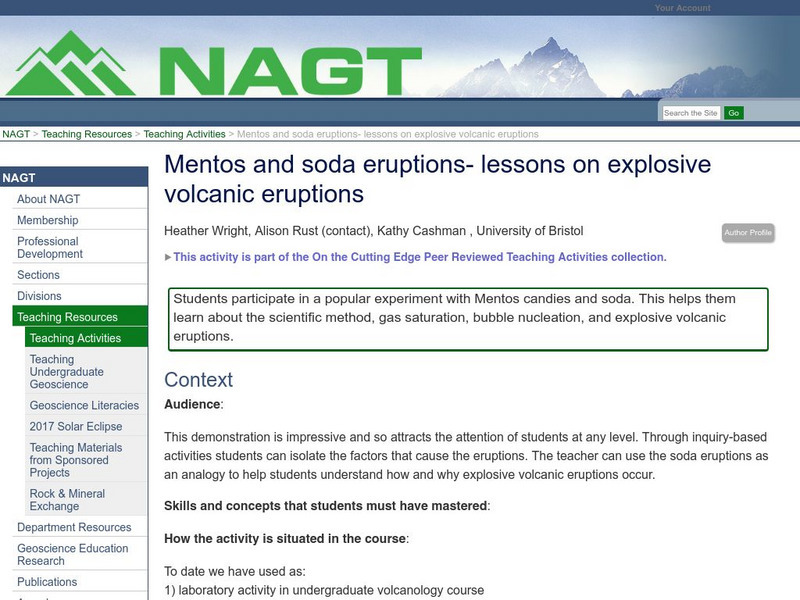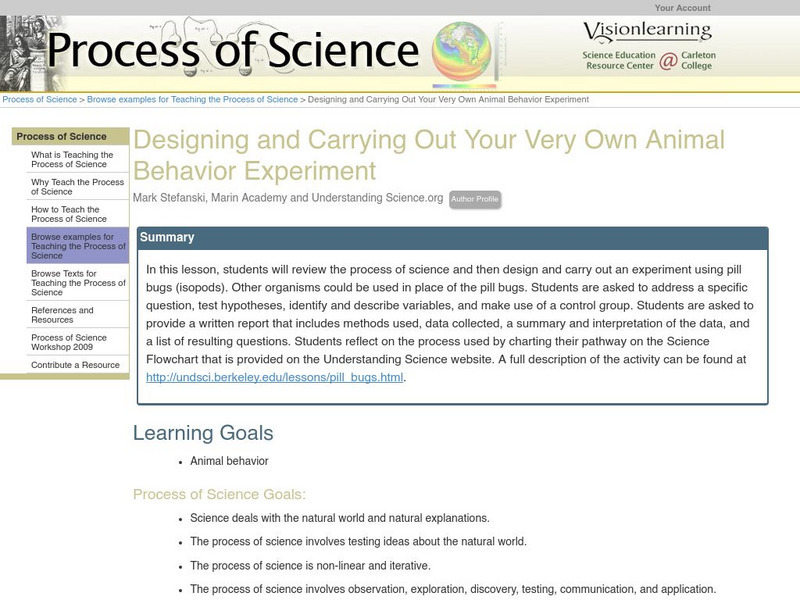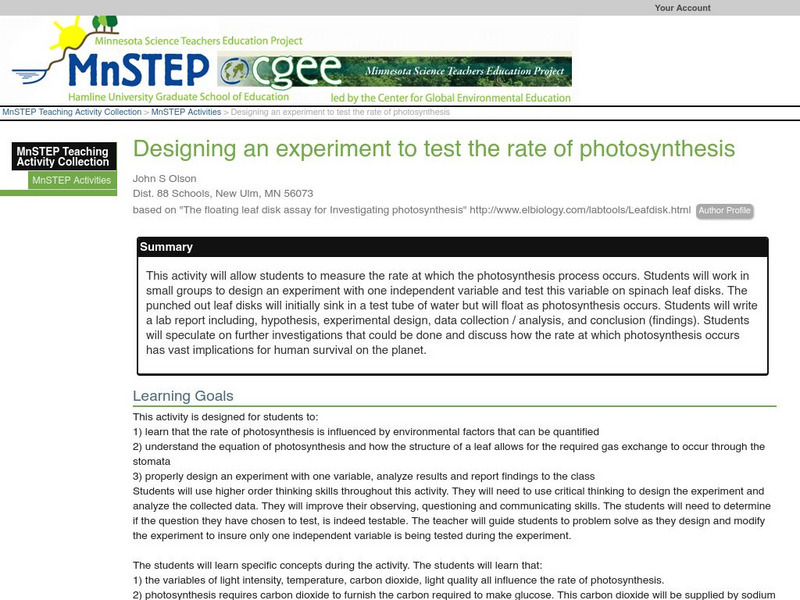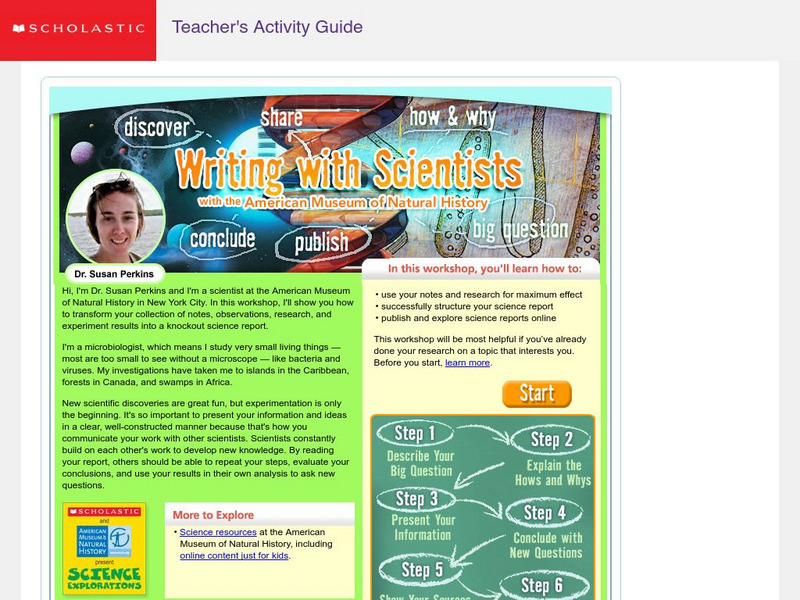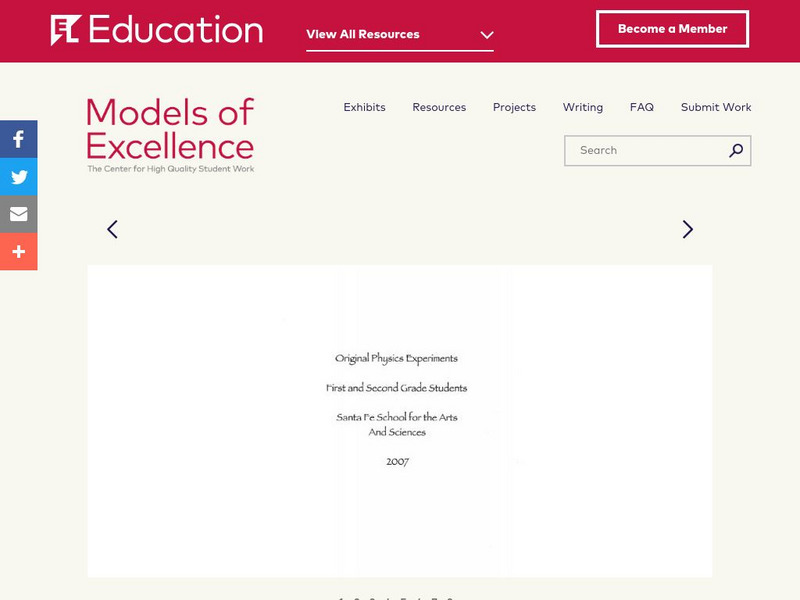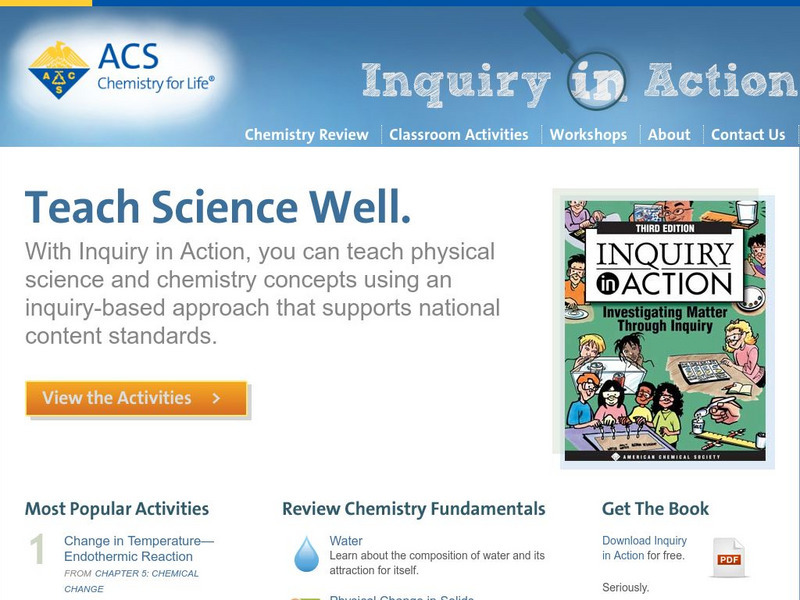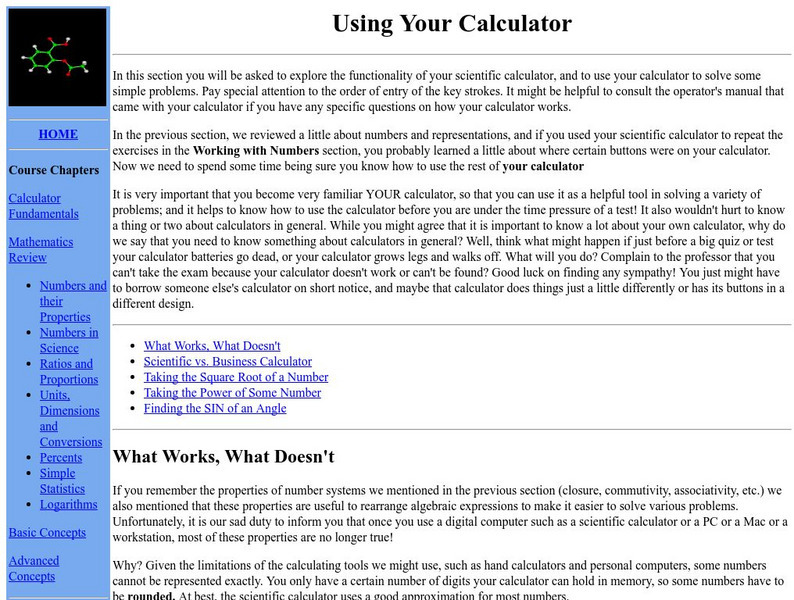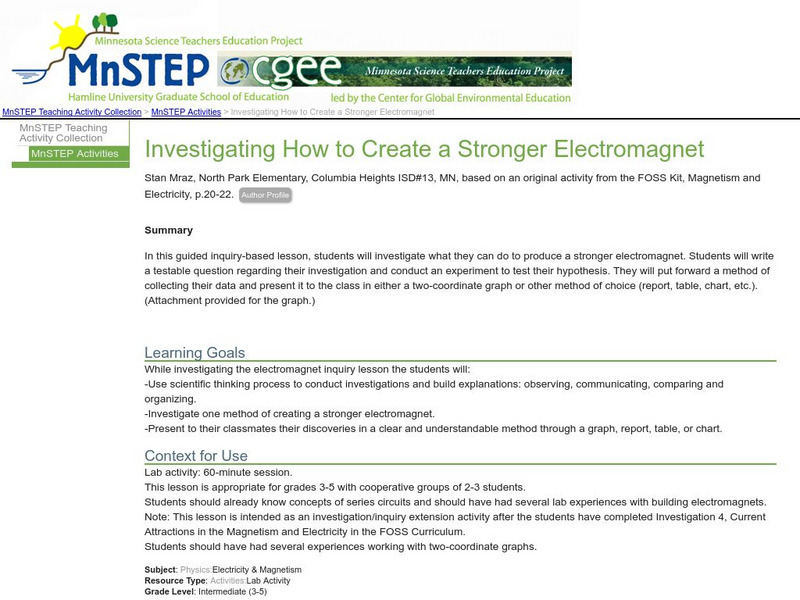ClassFlow
Class Flow: You Are a Scientist!
[Free Registration/Login Required] You are a Scientist, is an introduction to the scientific method and the steps we take in that process. The final page provides a link to the 2003-2004 winning science fair projects displaying the parts...
Science Education Resource Center at Carleton College
Serc: Mn Step: You Are a Scientist
Learners will practice the scientific method as they observe nature and ask questions about it.
Science Education Resource Center at Carleton College
Serc: Design an Experiment Testable on 50 People Dealing With Your 5 Senses
Pupils design an investigation about one of the five senses using the process of the scientific method.
Famous Scientists
Famous Scientists: Francis Bacon
Read about Francis Bacon, and finf out how he discovered and popularized the scientific method.
National Association of Geoscience Teachers
Serc: Mentos and Soda Eruptions: Lessons on Explosive Volcanic Eruptions
Students will learn about volcanic eruptions, the scientific method, gas saturation, and bubble nucleation by participating in a popular experiment with Mentos candies and soda.
Science Education Resource Center at Carleton College
Serc: Designing and Carrying Out Your Very Own Animal Behavior Experiment
Students review the process of science and then use the scientific process to design and carry out an experiment using pill bugs.
Sophia Learning
Sophia: What Is Science?
A brief overview of the body of science, including the purpose of doing scientific work.
Michigan State University
Michigan State University: Lets Net: Growing Plants Unit
For this unit, students can learn about the affects of water, soil, and sunlight on plant's growth while learning about the scientific process. Unit allows students to create a controlled experiment while studying plants.
Science Education Resource Center at Carleton College
Serc: Designing an Experiment to Test the Rate of Photosynthesis
Using spinach leaf disks, students measure the rate at which the photosynthesis process occurs. Students speculate on further investigations that could be done and discuss how the rate at which photosynthesis occurs has vast implications...
National Health Museum
Access Excellence: Step by Step Science Fair Success
This site from Access Excellence provides a wealth of information regarding how to run a science fair for middle school students. Content explores the planning process, guidelines, student tasks and paperwork, examples, assessment, and...
PBS
Pbs Kids: Dragonfly Tv Science Fair: Plan
So, you've chosen your topic and done your research, now, you need to plan your investigation. PBS site walks you through some steps to help guide you through the planning process.
Scientific American
Scientific American: Smart People Believe Weird Things
This article, published by Scientific American (September 2002), explores how smart people can believe weird and silly things. The article comes to the conclusion that our beliefs are shaped more by our environment than our understanding...
TeachEngineering
Teach Engineering: Sugar Spill!
In this activity, students act as environmental engineers involved with the clean up of a toxic spill. Using bioremediation as the process, students select which bacteria they will use to eat up the pollutant spilled. Students learn how...
Scholastic
Scholastic: Writing With Scientists With the American Museum of Natural History
Follow this six-step method and you'll have a good understanding of what a good scientific research paper involves and how it is organized. There are plenty of samples for you to look at. This explanation is also very helpful for...
EL Education
El Education: Original Physics Experiments
Students ask questions about why things move the way they do and then design and carry out science experiments on the physics behind the movement. Students create lab reports to explain the steps of their process and to record...
American Chemical Society
American Chemical Society: Inquiry in Action: Teach Science Well
Online textbook reviews fundamentals of chemistry and physical science via slideshow presentations, notes, and videos. Materials for classroom activities engage students in inquiry-based, hands-on investigations covering molecular...
American Chemical Society
American Chemical Society: Inquiry in Action: Teach Science Well
Online textbook reviews fundamentals of chemistry and physical science via slideshow presentations, notes, and videos. Materials for classroom activities engage students in inquiry-based, hands-on investigations covering molecular...
Shodor Education Foundation
Shodor: Using Your Calculator
This site deals with using a calculator to help solve and evaluate mathematical problems. This site provides a lengthy chart of basic operations performed by calculators, examples of problems to be solved using a calculator, as well as...
CK-12 Foundation
Ck 12: Introduction to Biology: Unit 1: Vocabulary
[Free Registration/Login may be required to access all resource tools.] Lists vocabulary terms related to the scientific process for the first unit of a beginning biology text.
ClassFlow
Class Flow: Helping Plants Grow Well
[Free Registration/Login Required] In this unit children learn about what plants need to grow well and why this is important.
Science Education Resource Center at Carleton College
Serc: Investigating How to Create a Stronger Electromagnet
In this lesson, students will investigate what they can do to produce a stronger electromagnet. Students will use the scientific thinking process to conduct investigations and build explanations. They will present their discoveries to...
American Geosciences Institute
American Geosciences Institute: Science Fair Project
A complete guide to carrying out the most successful science fair project. Includes graphic organizers for planning.




